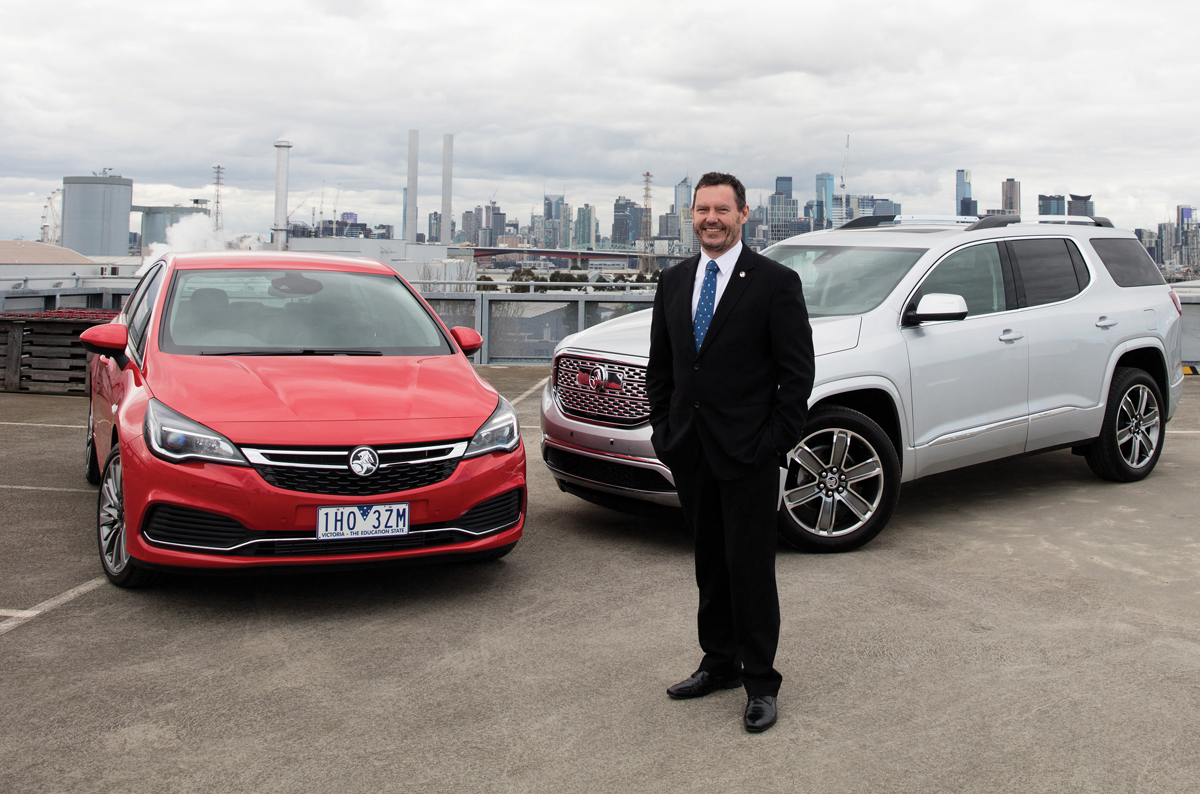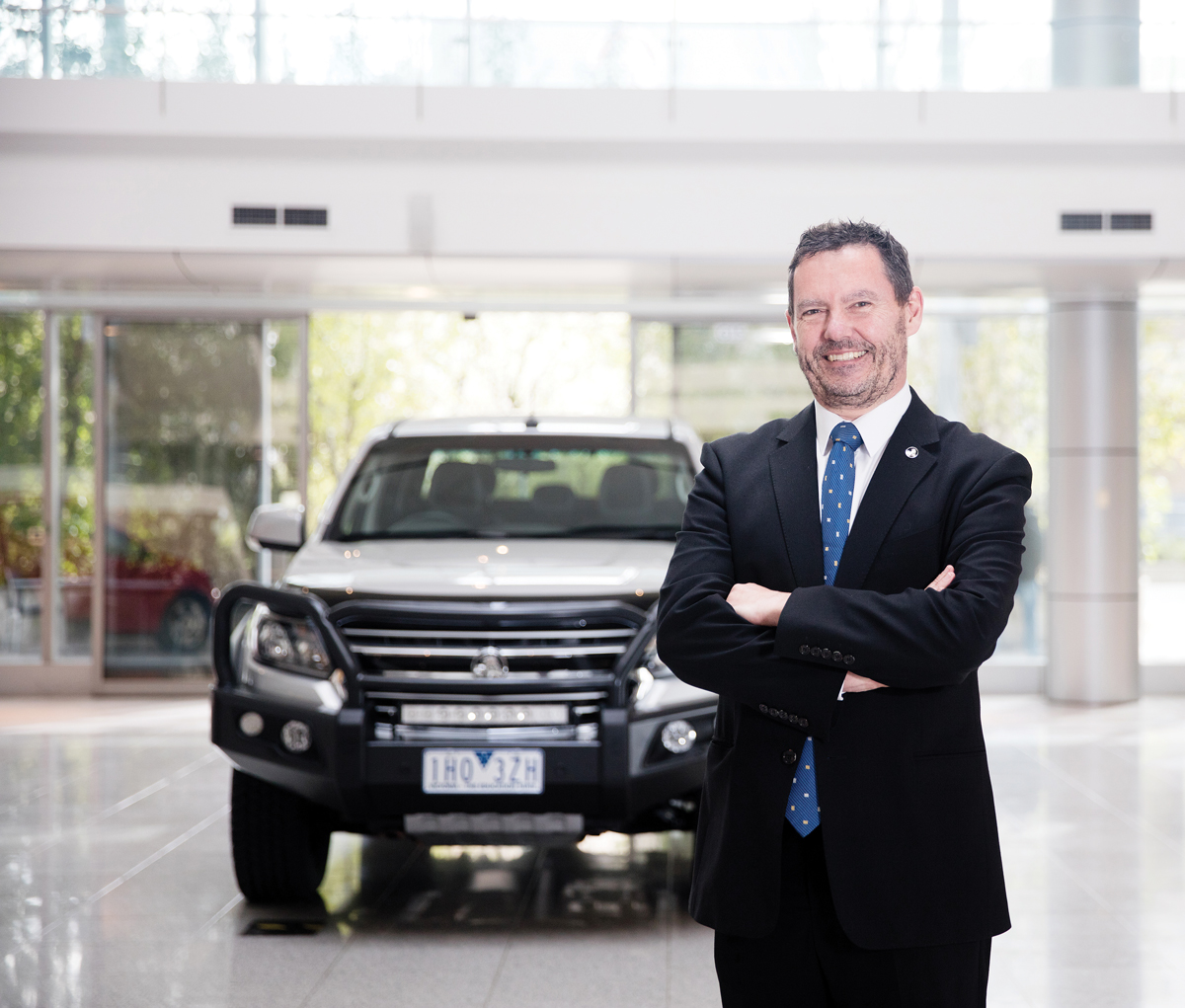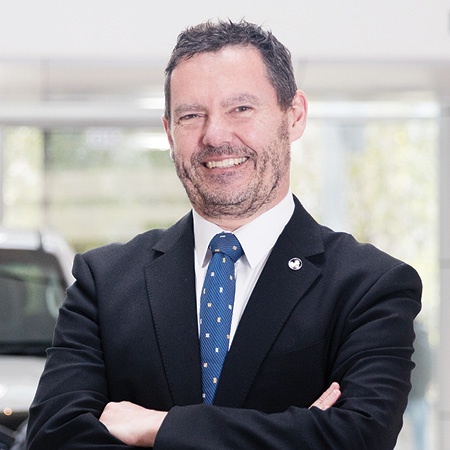Playing a considerable role in the incubation of the Australian automobile industry, GM Holden has experienced a remarkable array of record peaks and challenging drops throughout the past three decades. Founded by James Alexander Holden in 1856, Holden started as a saddler business in Adelaide. The company eventually moved into the automotive industry, going from a whisper to a purr by first producing motorcycle sidecars, before roaring into full-sale vehicle production, where the business soon flourished into one of the world’s leading car manufacturers.
From its boom years in the 1990s to shock losses in the 2000s, Holden has had to adjust its trajectory these past few years to suit changing requirements in the region. Mark Bernhard, Chairman and Managing Director for the iconic car company, is now leading Holden’s evolution to being purely an importer, with plans to close its Adelaide factory and rely on imported cars for ANZ customers by 2017.
‘True blue Aussie branding’
“As Holden goes through this significant period of change, I am committed to ensuring that we build a future that is worthy of our heritage,” says Mark. Despite low sales in 2015, the Holden lion has no plans to dull its roar, in fact the past year has been about expanding the company’s appeal beyond traditional stereotypes, while staying true to the brand’s history and heritage.

The image anchored in ‘true blue Aussie branding’ drove decades of success but Mark believes it requires an evolution that better reflects the changing Australian automotive landscape.
Evolving with the automotive industry
In the face of some difficult decisions, it has taken resilience to the evolving marketplace to achieve the longevity that Holden has had, and management must once again modify business strategies and working models to improve customer service and revolutionise its products. From being the first Australian car company to introduce seatbelts to being the first brand in the global GM stable to use aluminium bonnets with the current VF Commodore, Holden has a history of innovation.
The emblem, which has been revised several times over the past century, has played a vital role in establishing Holden’s identity as an incubator and a leader in its realm. And who better to lead the pride than Mark, who has risen through the ranks of Holden and its parent company, General Motors. Since 1986, Mark has held a range of strategic roles across Australia, Europe, the US and Asia–Pacific.
“I have been with Holden for just more than thirty years now, I spent most of that time working through the finance function. I started with Holden here in Australia, and then in 1996 — ten years later — I first moved overseas and spent a number of years working out of Zurich at the GM International HQ, and then on to Detroit in Financial Planning and Analysis supporting external corporate and internal communications,” says Mark.
He then moved to Singapore in mid-1999 where he headed up a range of operations for three years including mergers and acquisitions, new product program investments, and leading the company’s increasing stake in the Daewoo motor company. “In July 2002 I moved to China to become CFO for GM, and then also became CFO for a new joint venture between GM and SAIC. Then I returned home to Australia in 2007 to rejoin Holden as CFO,” says Mark. At the time, Holden was recognised as ‘Australia’s own’ automotive manufacturer. It was recognised as producing the second largest volume in the market with annual sales of about 150,000 units and annual revenue of US$5 billion.
The comfort of his homeland was short lived, however, with the strike of the global financial crisis the same year. Mark helped to steer Holden through the worst of the crisis for four years, during which GM went through a Chapter 11 reorganisation, selling off assets and some of its subsidiaries after filing for bankruptcy in the US.
“That was clearly an interesting time, going through our parent company’s reorganisation, the GFC and the subsequent automotive industry crisis,” says Mark. “So I learned a lot through that process.” After GM managed to relaunch an IPO of stock in 2010, Mark returned to Shanghai and resumed his position as CFO for GM Shanghai until 2015 when he assumed the new position of Chairman and Managing Director of Holden Australia.
Driving forward as an importer and significant global design and engineering presence
“I’ve had a diverse career, with a range of different countries and assignments, and many challenges.” Now Mark’s focus is on the constantly changing Australian motor industry, leveraging the support and financial backing of GM to invest in new technology, new vehicles and expanding scale. Though Holden Australia is ceasing local manufacture in 2017, it will be continuing on as an importer and maintaining a significant global design and engineering presence, not to mention retaining the 10,000 people employed across its 230-strong national dealer network.
“As Holden goes through this significant period of change, I am committed to ensuring that we build a future that is worthy of our heritage.” – Mark Bernhard

“Our designers and the engineers work on both global and local programs and the team is very well respected internationally — and having them here gives us somewhat of an advantage,” says Mark. “It allows us to continue to test, tune and develop vehicles for Australian customers. We get to leverage the proving ground.” The transition away from manufacturing follows a fluctuation in sales, most notably a decline in the traditional large sedan market as the Australian market has fragmented with record low tariffs and a flood of international competition.
“It’s certainly a very interesting time, with the shift away from large passenger cars and a much more fragmented industry. Small cars are now the largest segment in the market, but there has also been a massive shift towards SUVs and pickup trucks. Customers have a lot more choice,” says Mark. “That’s one of the key reasons why the customer experience becomes so central and why service has become a differentiator.”
24 new new vehicles by 2020
Holden is also in the midst of the largest and most comprehensive overhaul of its vehicle portfolio in the company’s history, Announcing the release of twenty-four new vehicles by 2020. “We are well on the path to deliver those vehicles and we have had a number come out already, including the Spark, which is leading in the micro-car segment; the Colorado, our latest ute; and then we have the Astra at the end of the year as well, which has been awarded the ‘European Car of the Year’. So we have some fantastic products.”
Its shift to an import-only model means less reliance on suppliers, but Holden seeks to maintain strong partnerships, in particular with its many dealerships. “The dealers are the face of Holden, they deal with our customers face-to-face, and we need to support them however we can to make sure they deliver the best customer experience possible,” Mark says. “We have more than 10,000 employees across our 230-strong dealer network, and we’ll have around 300 designers and engineers. Everything pieces together like a jigsaw puzzle, and everyone plays a role in our success.”
Holden has incurred significant financial losses in the transition to a full-line vehicle importer, driven by write-downs in its manufacturing assets and employee separation costs. But Mark says looking after those people affected by the closure of manufacturing remains an overriding priority. “We are going through a very significant restructuring of the organisation over the next few years, and one of the reasons that I took on this role was to ensure that we treated all of the employees in the business with the respect and dignity they deserve.”
Long-term success in Australia
Mark says that as a leader, he remains committed to the Holden brand and its long-term success in Australia, and he is honoured to lead the company through its ongoing challenges. “We can’t stand still, particularly as we look at how the industry is likely to continue evolving over the next five years; from innovations like autonomous vehicles, to the rise of ride sharing. It’s going to be a very exciting time in the industry.”

